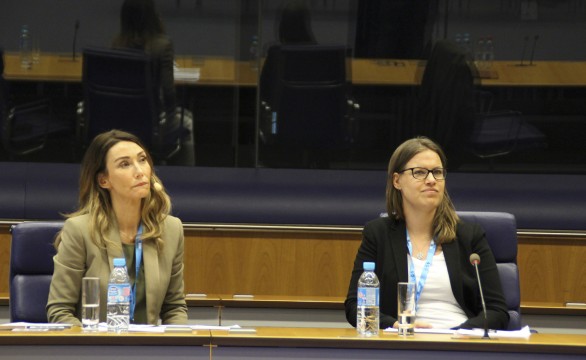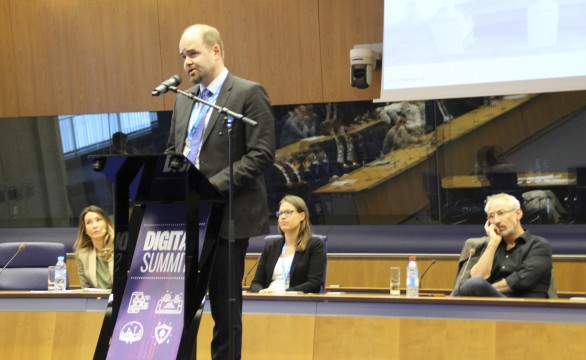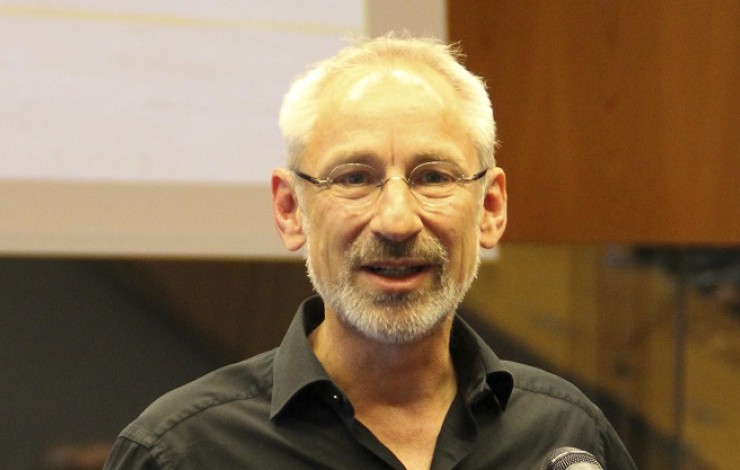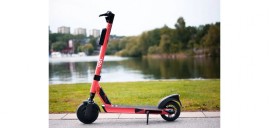On May 9th and 10th, more than 5,000 of professionals gathered at the European Convention Center Luxembourg to discuss the latest tech, space, FinTech and digital trends. During two days, the ICT Spring 2017 speakers’ wondered how the digital technologies could change and improve our way of life through four conferences: Entertainment superpowers, Blockchain cross industry, Digital transformation and The Future of mobility.
The last session of the digital summit addressed the Future of mobility with top automotive manufacturers and suppliers as well as new actors who are disrupting the sector.
To start the conference, Peter-Frans Pauwels, co-founder of the well-known company Tomtom, presented The Accelerating Transformation Of Mobility. During his speech, Peter-Frans Pauwels explained that we need technologies in our lives, but as a regulator, not as a way of life. Especially for mobility, technologies represent a huge opportunity to improve our quality of life, our comfort and our security, as he said “comfort gives that time to drive more safety”.
Then, the Regional General Manager of Northern Europe of the famous tech company Uber, Jo Bertram exposed “How to reduce car ownership and increase mobility” thanks to digital technologies. She explained that the main issue is not the car itself, is the way we use it: individually. But they are already seeing proofs to individual car ownership begins to change. When people are given an affordable, reliable alternative they’re happy to take it. Ms. Bertram showed how traffic in big cities is complicated, bad for environment and a waste of time. But in a strange way, even in cities where common transports are well developed, as New-York or Paris, people continue to use their own car. But as Jo Bertram showed that sharing one's car represents many advantages: less CO² emission, less car accidents, and at least, it facilitates traffic in the city. These are the many reasons to adopt this new way of mobility.
The Senior Vice President of Rolls-Royce Marine Digital &Systems, Karno Tenovuo told us that “The future of Marine mobility is autonomous”. He explained us how digitalization and ship intelligence take place in the marine market through asset management, optimization and decision support and remote and autonomous operations. Thanks to technologies, it possible to integrate sensor data, autonomous supply vessel drone and the first automatic control system Fjord 1 they developed which ensures safe and energy efficient transit by automatically controlling the vessel’s acceleration, deceleration, speed and track. The captain will supervise the system, and intervene if needed. The vessels are due for delivery in 2017.
In conclusion, the future of mobility will not be possible without new technologies. They improve our life whether of ecology and environment or our comfort and our security. Digital technologies are essential to our future.


Héléna Coupette










